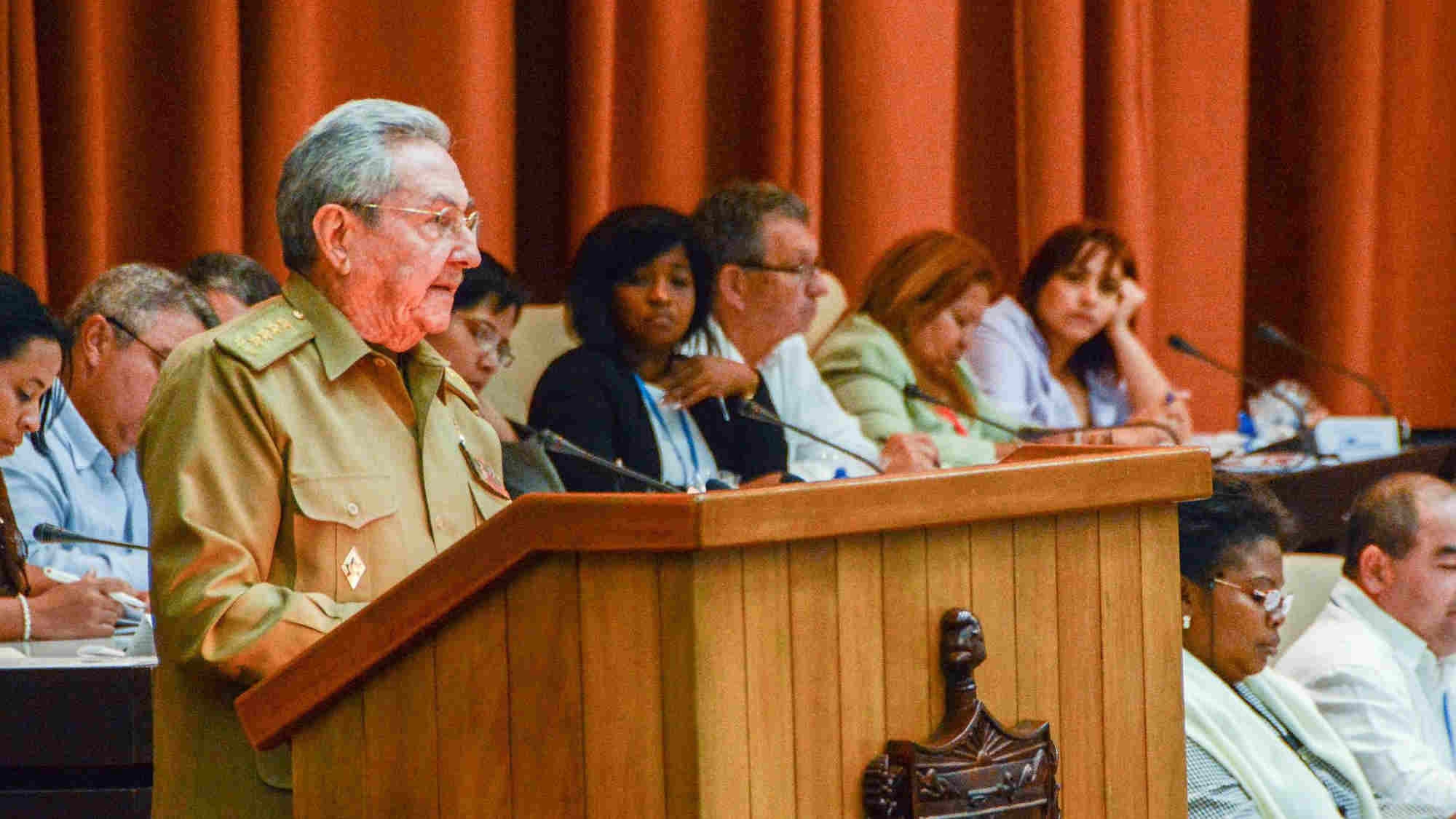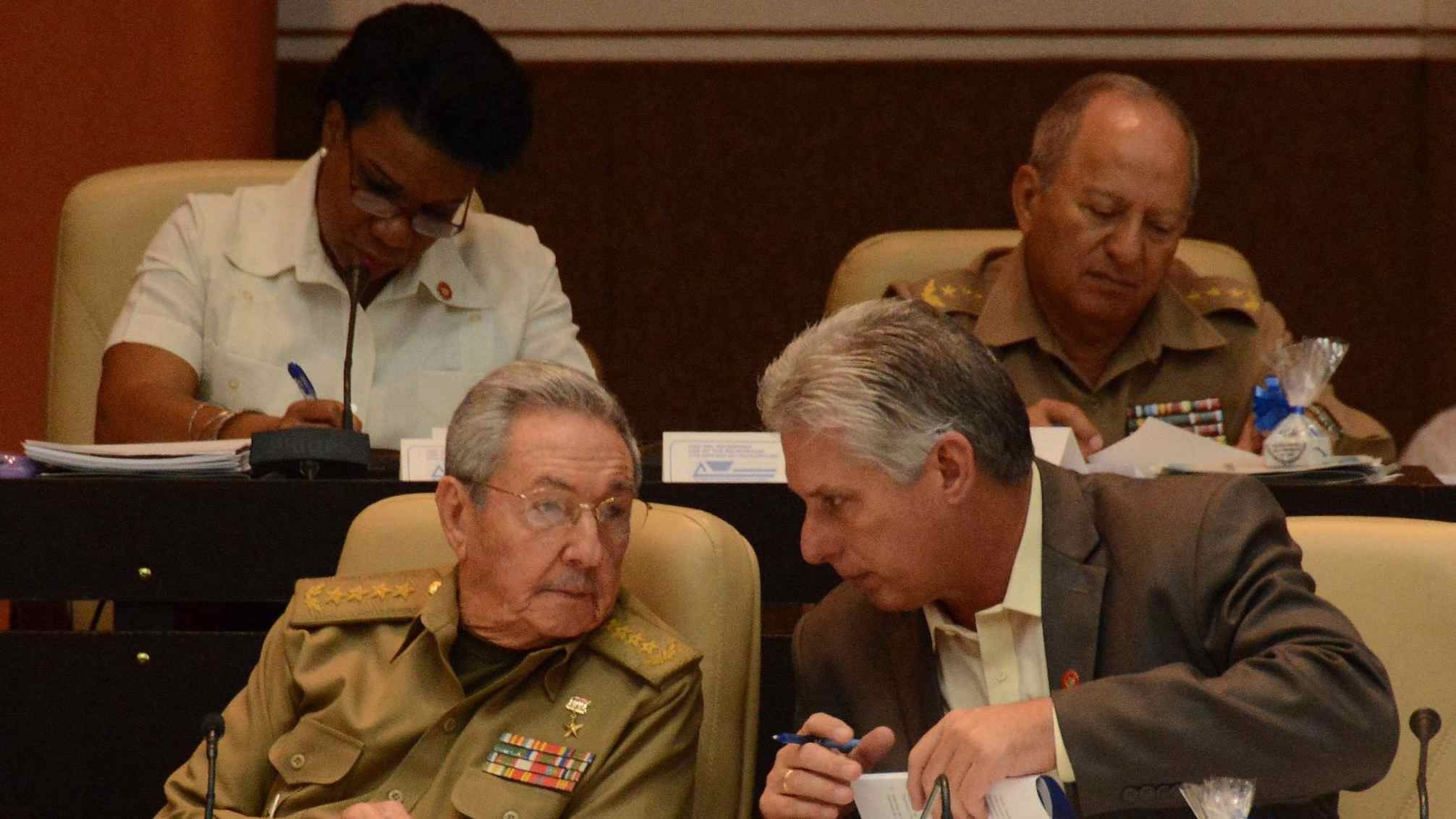
Politics
09:02, 08-Mar-2018
Cuba election will play crucial part in the next era of Cuban politics
By Michael Voss

People across Cuba will go to the polls on Sunday to elect a new Parliament – the National Assembly of People’s Power.
CGTN’s Havana correspondent Michael Voss looks at the significance of the election and possible successors to President Raul Castro.
At one level there will be few surprises, there is only one candidate contesting each of the 605 seats.
But this is a crucial step in what will be a major generational change in Cuban politics. Raul Castro has announced that he will step down as president and a new leader will be announced when the Assembly meets for the first time on April 19th.
For the first time in almost 60 years, there will not be a Castro as head of state.
The next president
There has been no official announcement but the man widely expected to take over is 57-year-old First Vice President Miguel Díaz-Canel.

Cuban President Raul Castro gives a speech during the 10th and last regular session of the National Assembly of Popular Power, at the Convention Palace in Havana, December 21, 2017. /VCG Photo
Cuban President Raul Castro gives a speech during the 10th and last regular session of the National Assembly of Popular Power, at the Convention Palace in Havana, December 21, 2017. /VCG Photo
He came up through the ranks of the Communist Party and became a provincial party leader at age 31, the US equivalent of a state governor. He went on to become one of the youngest members ever appointed to the Politbureau, the party’s top decision making body.
Díaz-Canel has a reputation for being liberal on issues such as greater press freedom, gay rights and access to the Internet. Yet he has also been recorded taking a very hard stance on political dissent and other issues.
Just what his powers will be if he does become president is hard to judge. Raul Castro will stay on as head of the Communist Party, which remains the country’s guiding force.
Rafael Hernandez is Editor of Temas, Cuba’s leading magazine covering political, social and cultural issues. He believes that this split will be a good thing, a step towards decentralized leadership.
“There is no maximum leader any longer. With Raul remaining as General Secretary of the Communist Party he can facilitate the transition by showing that everybody in the Cuban leadership supports the new government,” he said.
How the president is selected
To become president you must be a member of the National Assembly.
Apart from Raul, the only other Castro standing is his daughter Mariela Castro, head of the National Center for Sex Education and the island’s leading LBGT rights champion. There is no indication that she has any interest in the presidency.
Alejandro Castro Espín, Raul’s only son, is a powerful political and military figure who holds the rank of Colonel in the Ministry of Interior. He is not on the list of candidates so can’t stand for president.
Raul Castro's legacy

Cuban President Raul Castro (L) and Cuban First Vice President Miguel Diaz Canel talk during the 10th and last regular session of the eighth Legislature of the National Assembly of Popular Power, at the Convention Palace in Havana, December 21, 2017. /VCG Photo
Cuban President Raul Castro (L) and Cuban First Vice President Miguel Diaz Canel talk during the 10th and last regular session of the eighth Legislature of the National Assembly of Popular Power, at the Convention Palace in Havana, December 21, 2017. /VCG Photo
Raul Castro always saw himself as a transitional leader whose role was to ensure that Cuba’s revolutionary socialist system continues after the historic generation who created it are gone. His reforms were aimed at creating “a prosperous and sustainable socialism.”
Jose Castañeda, a full-time local council official, is one of the 605 candidates for the National Assembly. He sees Raul Castro’s legacy as one of continuity.
“Raul Castro has followed up on all the ideas Fidel aimed at achieving. Our economy has experienced an awakening thanks to the huge effort Raul has made,” he said.
Rafael Hernandez sees Raul’s main legacy as a method of legitimizing reforms.
“Cubans today are use to the idea that socialism is not a system that is intact and stays the same. Now the new President won’t have to convince people that reforms are needed, even if some costs will be necessary,” he said
Cuba’s state run economy continues to struggle; but under Raul Castro’s economic reforms more than half a million Cubans have left the state sector to become self-employed.
“Raul Castro’s legacy is opening up the economy to the non-state sector creating small private businesses,” said Pedro Curbelo, a Communist Party member and self-employed taxi driver.
Curbelo also praised Raul for allowing the legal sale of houses and cars and the possibility to travel abroad.
The nation now waits to see what the next round of changes will bring.
12756km

SITEMAP
Copyright © 2018 CGTN. Beijing ICP prepared NO.16065310-3
Copyright © 2018 CGTN. Beijing ICP prepared NO.16065310-3